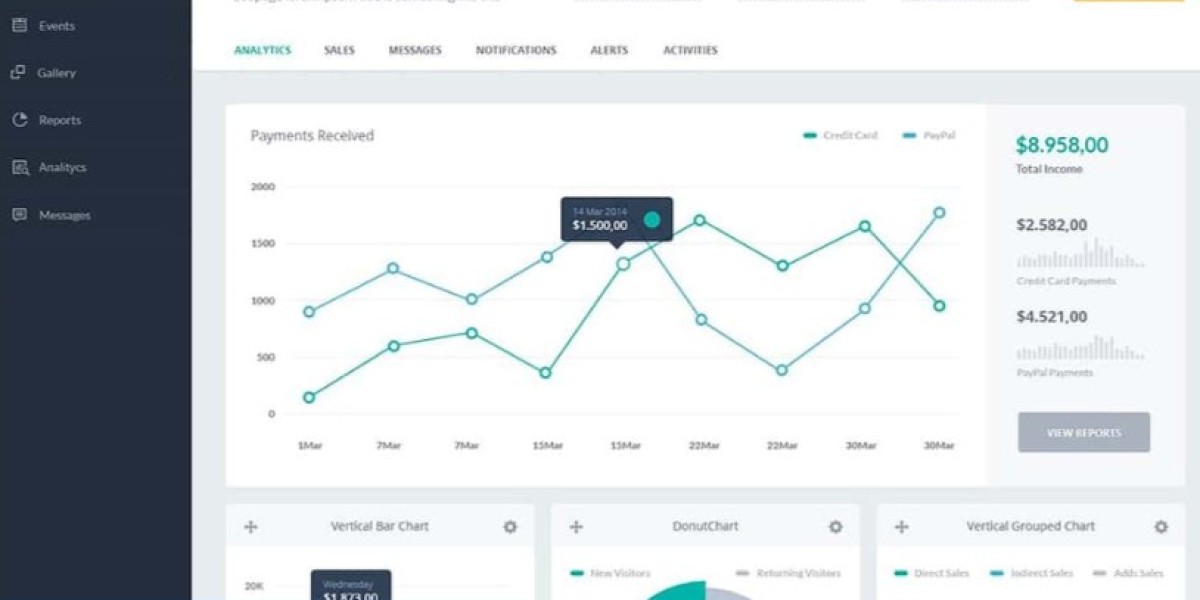In today’s world, ensuring the safety and security of your home or business is paramount. With the rise in crime rates and various security threats, investing in a reliable security system has become essential. Among the various options available, the DSC security system stands out for its effectiveness and user-friendly features. This article will provide an overview of the DSC security system, focusing on its components, advantages, and why the DSC alarm panel is a key element in maintaining security.
What is a DSC Security System?
DSC, short for Digital Security Controls, is a well-known manufacturer of security systems that has been in the industry for decades. The DSC security system is designed to provide comprehensive protection for residential and commercial properties. It typically includes a combination of alarm panels, sensors, and other components that work together to monitor for intrusions and other security threats.
Key Components of a DSC Security System
DSC Alarm Panel: The heart of the DSC security system is the alarm panel. This device acts as the central hub, receiving signals from various sensors throughout the property. It is user-friendly, allowing homeowners or business owners to monitor and control their security system easily.
Sensors: A variety of sensors can be integrated into a DSC security system, including door/window contacts, motion detectors, and glass break sensors. These devices detect unauthorized entry or unusual activity and send alerts to the alarm panel.
Keypads: The keypad is the interface through which users can arm or disarm the system. DSC offers a range of keypads, including basic models and more advanced versions with touchscreens and other features for ease of use.
Cameras: While the core of the DSC security system focuses on alarms, it can also be equipped with cameras for video surveillance. This addition enhances the ability to monitor activity around your property in real time.
Monitoring Services: Many DSC systems can be connected to professional monitoring services. This means that if an alarm is triggered, trained professionals can respond immediately, contacting authorities if necessary.
Advantages of a DSC Security System
1. Reliability
DSC security systems are known for their reliability. With robust hardware and advanced technology, they provide consistent monitoring and quick response times. This reliability is crucial in emergencies where every second counts.
2. Customization
Every property is unique, and a one-size-fits-all approach to security often falls short. DSC systems can be tailored to meet specific needs. Whether you require a basic setup for a small home or a comprehensive system for a large business, DSC has options to suit various security requirements.
3. User-Friendly Interface
One of the standout features of the DSC alarm panel is its user-friendly interface. Many users appreciate the intuitive design, making it easy for anyone to navigate the system without extensive training. This accessibility is vital for ensuring that users can quickly respond to alerts.
4. Integration with Smart Technology
Modern DSC security systems can integrate with smart home technologies. This means you can control your security system remotely using your smartphone or other devices. Features like remote arming, disarming, and real-time alerts can significantly enhance the user experience.
5. Scalability
As your security needs evolve, so can your DSC security system. It’s easy to add additional sensors, cameras, or other components to the existing system. This scalability makes DSC an excellent long-term investment for security.
Installing Your DSC Security System
Professional vs. DIY Installation
When considering a DSC security system, you’ll need to decide between professional installation and a do-it-yourself (DIY) approach. Professional installation ensures that the system is set up correctly and functioning optimally. Technicians can provide valuable advice on sensor placement and system configuration.
Conversely, DIY installation can be a cost-effective option if you’re comfortable with technology. DSC provides clear instructions and user manuals, making it feasible for many homeowners to set up their systems.
Initial Setup and Configuration
Once installed, the DSC alarm panel needs to be configured according to your preferences. This includes setting up user codes, programming the various sensors, and customizing alert notifications. Spend some time familiarizing yourself with the features available through the alarm panel to get the most out of your system.
Maintenance and Troubleshooting
Maintaining your DSC security system is crucial for ensuring its effectiveness. Regularly check batteries in wireless sensors, test the alarm panel, and keep the software updated. If you encounter issues, refer to the user manual or contact professional support for troubleshooting guidance.
Common Issues and Solutions
Some common problems users may face include false alarms, communication errors, or connectivity issues. Most of these can be resolved by checking sensor placement, ensuring that batteries are charged, and confirming that the alarm panel is properly configured.
Conclusion
Investing in a DSC security system is a wise decision for anyone looking to enhance the safety of their home or business. The DSC alarm panel serves as the backbone of this reliable system, providing ease of use and peace of mind. With customizable options, integration with smart technology, and scalability, the DSC security system can adapt to your needs over time.
For more information and professional guidance on selecting the best system for your needs, reach out to trusted suppliers like Backstreet Surveillance to help you make an informed decision.








